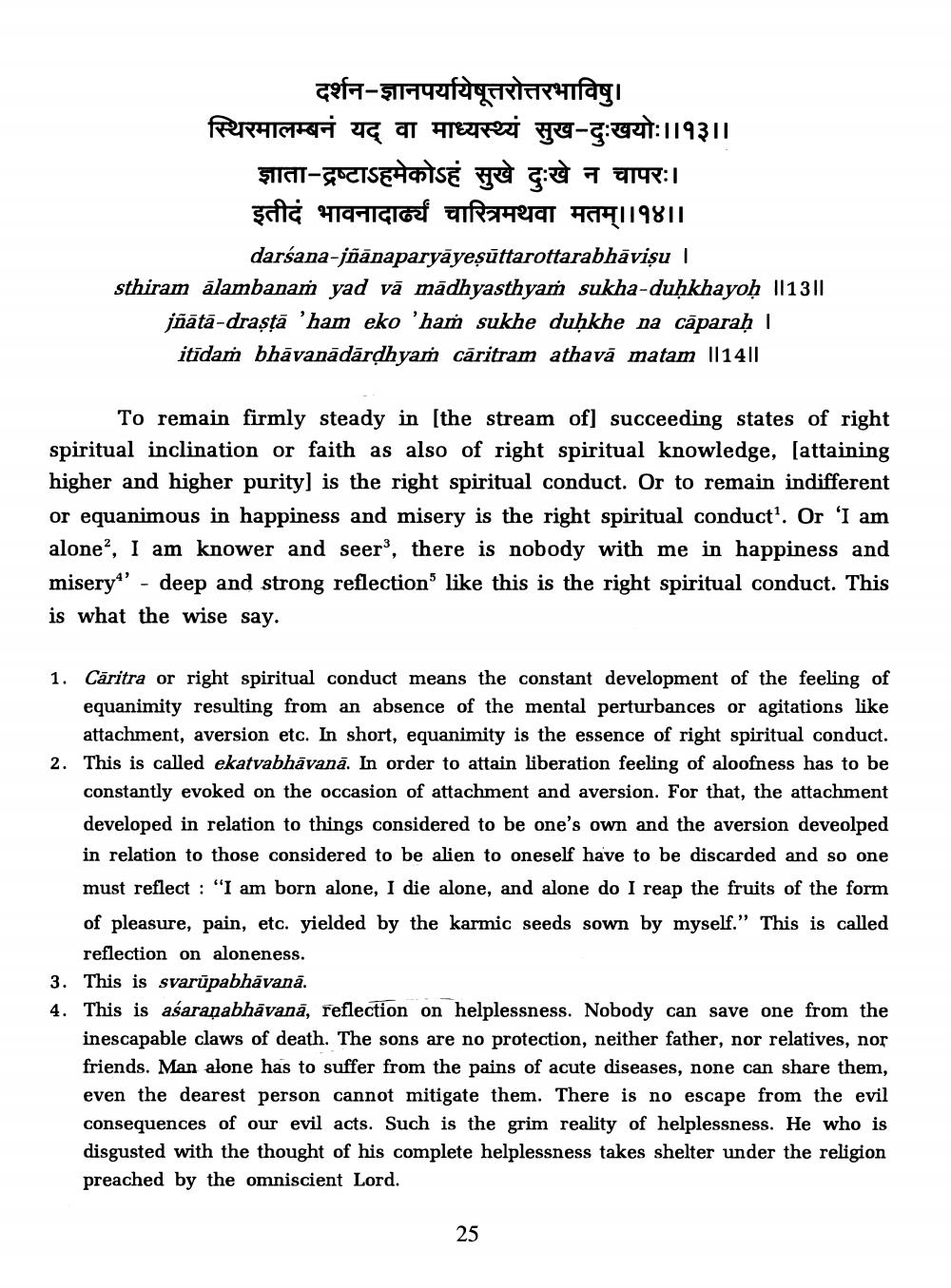________________
दर्शन - ज्ञानपर्यायेषूत्तरोत्तरभाविषु । स्थिरमालम्बनं यद् वा माध्यस्थ्यं सुख - दुःखयोः ।। १३ ।।
ज्ञाता-द्रष्टाऽहमेकोऽहं सुखे दुःखे न चापरः। इतीदं भावनादार्यं चारित्रमथवा मतम् ।।१४।।
darśana-jñānaparyayeṣuttarottarabhāviṣu |
sthiram ālambanam yad vā mādhyasthyam sukha-duḥkhayoḥ ||13|| jñātā-draṣṭā 'ham eko 'ham sukhe duḥkhe na caparaḥ | itīdam bhāvanādārḍhyam caritram athavā matam ||14||
To remain firmly steady in [the stream of] succeeding states of right spiritual inclination or faith as also of right spiritual knowledge, [attaining higher and higher purity] is the right spiritual conduct. Or to remain indifferent or equanimous in happiness and misery is the right spiritual conduct'. Or 'I am alone, I am knower and seer3, there is nobody with me in happiness and misery' - deep and strong reflection like this is the right spiritual conduct. This is what the wise say.
1. Caritra or right spiritual conduct means the constant development of the feeling of equanimity resulting from an absence of the mental perturbances or agitations like attachment, aversion etc. In short, equanimity is the essence of right spiritual conduct. 2. This is called ekatvabhāvanā. In order to attain liberation feeling of aloofness has to be constantly evoked on the occasion of attachment and aversion. For that, the attachment developed in relation to things considered to be one's own and the aversion deveolped in relation to those considered to be alien to oneself have to be discarded and so one must reflect "I am born alone, I die alone, and alone do I reap the fruits of the form of pleasure, pain, etc. yielded by the karmic seeds sown by myself." This is called reflection on aloneness.
3. This is svarūpabhāvanā.
4. This is aśaraṇabhāvanā, reflection on helplessness. Nobody can save one from the inescapable claws of death. The sons are no protection, neither father, nor relatives, nor friends. Man alone has to suffer from the pains of acute diseases, none can share them, even the dearest person cannot mitigate them. There is no escape from the evil consequences of our evil acts. Such is the grim reality of helplessness. He who is disgusted with the thought of his complete helplessness takes shelter under the religion preached by the omniscient Lord.
25




